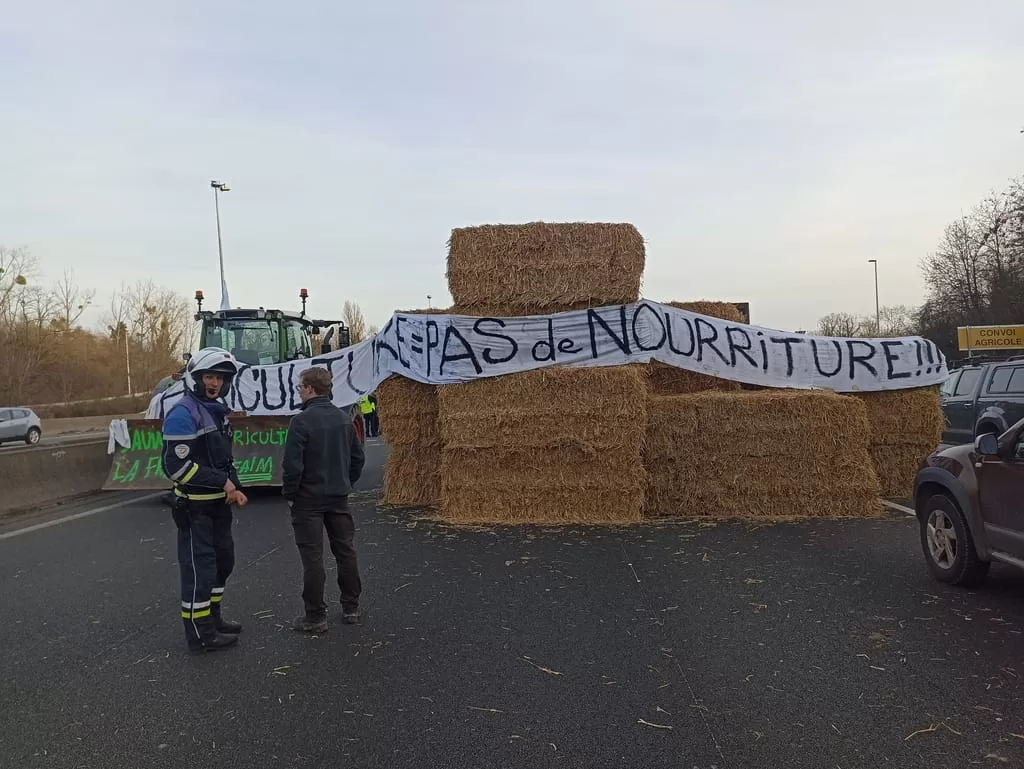These included a U-turn on the taxation of diesel fuel used by tractors which had been agreed on a few months ago and a pledge to speed up the disbursement of cash through the EU’s Common Agricultural Policy (CAP).
Grégoire Bouillant, a wheat farmer in a rural town in the Paris region, said he was “baffled” by the lack of “concrete and tangible” measures announced by the PM as he set up camp on one of the eight blockade points which were put up on highways around the French capital on Monday.
The call to protest was given by the sector’s main union, the FNSEA, of which Bouillant is a local representative. The makeshift camp on the A15 highway in Argenteuil, roughly 10 kilometers from the Paris city limits, signalled the farmers’ readiness to stay put.
The few dozen protesters, sporting green caps and jackets to represent their union, parked their tractors in line and put tables up under tents to use as a social area, serving an apéritif made up of beers served in plastic cups, chips and peanuts as the evening arrived. Toilets, barbecues, a power generator and a sound system were installed to ensure both vital needs and recreational activities.
“It’s our job to make ourselves heard around Paris,” Godefroy Potin, who grows a diverse range of produce on his farm and occasionally fixes workout equipment to make ends meet, said, pointing to a lack of interest and understanding for the country’s rural regions from politicians and journalists alike. “The agriculture minister is staffed with public servants, who are likely competent but have limited knowledge of farm work,” he added.
The union-led protests are, for now, staying on the outskirts of Paris. But roads and highways closer to the city could soon be blocked as well. “Everything’s on the table,” said Damien Radet, a beet farmer and elected sector representative.
